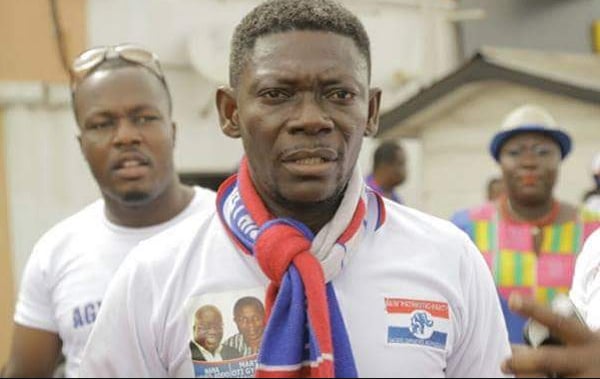Agya Koo, a prominent figure in the Ghanaian entertainment industry, ignited a political firestorm with his public assertion that widespread discontent simmers beneath the surface of President John Dramani Mahama’s administration. In a social media post dated September 17, 2025, the veteran actor claimed that a significant portion of the Ghanaian populace feels a palpable sense of regression, contrasting the current state of affairs with the perceived prosperity enjoyed during the tenure of former President Akufo-Addo. His statement, echoing sentiments purportedly gleaned from the public, directly challenged the incumbent government’s performance and hinted at a yearning for the return of the New Patriotic Party (NPP) to power. This sparked immediate debate, with some lauding Agya Koo’s courage to voice popular concerns and others criticizing him for potentially politicizing his platform and fueling partisan divisions.
The core of Agya Koo’s argument centered on the perceived decline in the quality of life under President Mahama. While he didn’t offer specific metrics or evidence to support this claim, his statement resonated with a segment of the population who likely shared his perspective. He presented the situation as if many Ghanaians were actively reminiscing about the Akufo-Addo era, viewing it as a period of greater economic stability and overall well-being. This nostalgic longing, according to Agya Koo, translated into a growing desire for the NPP to regain control of the government. By framing his statement as a reflection of public sentiment, he effectively amplified these concerns, bringing them into the forefront of national discourse and potentially influencing the political landscape.
Agya Koo’s post also introduced a crucial question regarding the NPP’s future leadership: “If the people want the NPP back, who do we present?” This seemingly innocuous query opened a Pandora’s Box of speculation and potential internal power struggles within the party. It suggested that while there might be a groundswell of support for the NPP’s return, the party itself needed to carefully consider its candidate for the next presidential election. This question hinted at the importance of strategic planning and the need to present a strong, unified front to capitalize on any perceived public dissatisfaction with the current administration. It also subtly acknowledged that the NPP’s success wouldn’t be solely dependent on public sentiment towards the incumbent government but also on the party’s ability to offer a compelling alternative.
However, Agya Koo’s foray into the political arena wasn’t without controversy. His statement immediately drew both praise and criticism. Supporters applauded his willingness to speak truth to power and give voice to the concerns of ordinary Ghanaians. They viewed him as a courageous figure unafraid to challenge the status quo, even at the risk of personal attacks. On the other hand, detractors accused him of being a political pawn, potentially used by the NPP to undermine the current government. They questioned his objectivity and suggested that his pronouncements were motivated by partisan bias rather than genuine concern for the nation’s welfare. Some even dismissed his comments as mere theatrics, a publicity stunt designed to enhance his own profile.
Agya Koo, anticipating the potential backlash, preemptively addressed the criticism in his post. He emphasized his multifaceted career as an actor, comedian, and musician, urging the public not to misconstrue his intentions. He insisted that his statement was not a personal attack on President Mahama or a calculated political maneuver but rather a sincere reflection of the sentiments he had encountered among the populace. He portrayed himself as a conduit for the people’s voice, a messenger relaying their anxieties and frustrations to the powers that be. This attempt to distance himself from partisan politics, while simultaneously engaging in a highly politicized discussion, highlighted the complex and often blurred lines between entertainment, public opinion, and political discourse.
In essence, Agya Koo’s social media post served as a lightning rod, attracting a wide range of reactions and igniting a heated debate about the state of Ghanaian politics. His assertion of widespread public discontent under President Mahama’s leadership, coupled with his question regarding the NPP’s future candidate, injected a fresh dose of uncertainty into the political landscape. While the veracity of his claims regarding public sentiment remains open to interpretation, his intervention undeniably amplified existing concerns and forced a broader conversation about the government’s performance, the opposition’s readiness, and the role of public figures in shaping political narratives. The incident underscored the power of social media as a platform for political expression and the potential for entertainers to wield significant influence in the public sphere.














